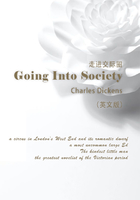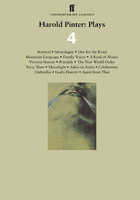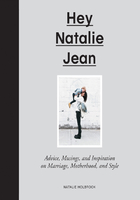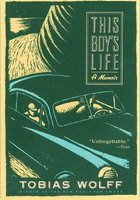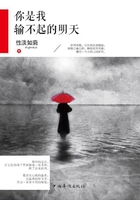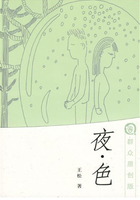Part 1
You must go back with me to the autumn of 1827.
My father, as you know, was a sort of gentleman farmer in-shire; and I, by his express desire, succeeded him in the same quiet occupation, not very willingly, for ambition urged me to higher aims, and self-conceit assured me that, in disregarding its voice, I was burying my talent in the earth, and hiding my light under a bushel. My mother had done her utmost to persuade' me that I was capable of great achievements; but my father, who thought ambition was the surest road to ruin, and change but another word for destruction, would listen to no scheme for bettering either my own condition, or that of my fellow mortals. He assured me it was all rubbish, and exhorted me, with his dying breath, to continue in the good old way, to follow his steps, and those of his father before him, and let my highest ambition be, to walk honestly through the world, looking neither to the right hand nor to the left, and to transmit the paternal acres to my children in, at least, as flourishing a condition as he left them to me.
'Well!-an honest and industrious farmer is one of the most useful members of society; and if I devote my talents to the cultivation of my farm, and the improvement of agriculture in general, I shall thereby benefit, not only my own immediate connections and dependants, but in some degree, mankind at large:-hence I shall not have lived in vain.'
With such reflections as these, I was endeavouring to console myself, as I plodded home from the field, one cold, damp, cloudy evening towards the close of October. But the gleam of a bright red fire through the parlour window had more effect in cheering my spirits, and rebuking my thankless repinings, than all the sage reflections and good resolutions I had forced my mind to frame;-for I was young then, remember-only four and twenty-and had not acquired half the rule over my own spirit, that I now possess,-trifling as that may be.
However, that haven of bliss must not be entered till I had exchanged my miry boots for a clean pair of shoes, and my rough surtout for a respectable coat, and made myself generally presentable before decent society; for my mother, with all her kindness, was vastly particular on certain points.
In ascending to my room, I was met upon the stairs by a smart, pretty girl of nineteen, with a tidy, dumpy figure, a round face, bright, blooming cheeks, glossy, clustering curls, and little merry brown eyes. I need not tell you this was my sister Rose. She is, I know, a comely matron still, and, doubtless, no less lovely-in your eyes-than on the happy day you first beheld her. Nothing told me then, that she, a few years hence, would be the wife of one-entirely unknown to me as yet, but destined, hereafter, to become a closer friend than even herself, more intimate than that unmannerly lad of seventeen, by whom I was collared in the passage, on coming down, and wellnigh jerked off my equilibrium, and who, in correction for his impudence, received a resounding whack over the sconce, which, however, sustained no serious injury from the infliction; as besides being more than commonly thick, it was protected by a redundant shock of short, reddish curls, that my mother called auburn.
On entering the parlour, we found that honoured lady seated in her armchair at the fireside, working away at her knitting, according to her usual custom, when she had nothing else to do. She had swept the hearth, and made a bright blazing fire for our reception; the servant had just brought in the tea-tray; and Rose was producing the sugar-basin and tea-caddy from the cupboard in the black, oak sideboard, that shone like polished ebony in the cheerful parlour twilight.
'Well! here they both are,' cried my mother, looking round upon us without retarding the motion of her nimble fingers and glittering needles. 'Now shut the door, and come to the fire, while Rose gets the tea ready; I'm sure you must be starved;-and tell me what you've been about all day; I like to know what my children have been about.'
'I've been breaking in the grey colt-no easy business that-directing the ploughing of the last wheat stubble-for the ploughboy has not the sense to direct himself-and carrying out a plan for the extensive and efficient draining of the low meadow-lands.'
'That's my brave boy!-and Fergus-what have you been doing?'
'Badger-baiting.'
And here he proceeded to give a particular account of his sport, and the respective traits of prowess evinced by the badger and the dogs; my mother pretending to listen with deep attention, and watching his. animated countenance with a degree of maternal admiration I thought highly disproportioned to its object.
'It's time you should be doing something else, Fergus,' said I, as soon as a momentary pause in his narration allowed me to get in a word.
'What can I do?' replied he; 'my mother won't let me go to sea or enter the army; and I'm determined to do nothing else-except make myself such a nuisance to you all, that you will be thankful to get rid of me, on any terms.'
Our parent soothingly stroked his stiff., short curls. He growled, and tried to look sulky, and then, we all took our seats at the table, in obedience to the thrice repeated summons of Rose.
'Now take your tea,' said she; 'and I'll tell you what I've been doing. I've been to call on the Wilsons; and it's a thousand pities you didn't go with me, Gilbert, for Eliza Millward was there!'
'Well! what of her?'
'Oh nothing!-I'm not going to tell you about her;-only that she's a nice, amusing little thing, when she is in a merry humour, and I shouldn't mind calling her-'
'Hush, hush, my dear! your brother has no such idea!' whispered my mother, earnestly, holding up her finger.
'Well,' resumed Rose; 'I was going to tell you an important piece of news I heard there-I've been bursting with it ever since. You know it was reported a month ago, that somebody was going to take Wildfell Hall-and-what do you think? It has actually been inhabited above a week!-and we never knew!'
'Impossible!' cried my mother.
'Preposterous!!!' shrieked Fergus.
'It has indeed!-and by a single lady!'
'Good gracious, my dear! The place is in ruins!'
'She has had two or three rooms made habitable; and there she lives, all alone-except an old woman for a servant!'
'Oh dear! that spoils it-I'd hoped she was a witch,' observed Fergus, while carving his inch-thick slice of bread and butter.
'Nonsense, Fergus! But isn't it strange, mamma?'
'Strange! I can hardly believe it.'
'But you may believe it; for Jane Wilson has seen her. She went with her mother, who, of course, when she heard of a stranger being in the neighbourhood, would be on pins and needles till she had seen her and got all she could out of her. She is called Mrs Graham, and she is in mourning-not widow's weeds, but slightish mourning-and she is quite young, they say,-not above five or six and twenty,-but so reserved! They tried all they could to find out who she was, and where she came from, and all about her, but neither Mrs Wilson, with her pertinacious and impertinent home thrusts, nor Miss Wilson, with her skilful manoeuvering, could manage to elicit a single satisfactory answer, or even a casual remark, or chance expression calculated to allay their curiosity, or throw the faintest ray of light upon her history, circumstances, or connexions. Moreover, she was barely civil to them, and evidently better pleased to say "goodbye," than "how do you do." But Eliza Millward says her father intends to call upon her soon, to offer some pastoral advice, which he fears she needs, as though she is known to have entered the neighbourhood early last week, she did not make her appearance at church on Sunday; and she-Eliza, that is-will beg to accompany him, and is sure she can succeed in wheedling something out of her-you know, Gilbert, she can do anything. And we should call sometime, mamma; it's only proper, you know.'
'Of course, my dear. Poor thing! how lonely she must feel!'
'And pray be quick about it; and mind you bring me word how much sugar she puts in her tea, and what sort of caps and aprons she wears, and all about it; for I don't know how I can live till I know,' said Fergus, very gravely.
But if he intended the speech to be hailed as a master-stroke of wit, he signally failed, for nobody laughed. However, he was not much disconcerted at that; for when he had taken a mouthful of bread and butter, and was about to swallow a gulp of tea, the humour of the thing burst upon him with such irresistible force, that he was obliged to jump up from the table, and rush snorting and choking from the room; and a minute after, was heard screaming in fearful agony in the garden.
As for me, I was hungry, and contented myself with silently demolishing the tea, ham, and toast, while my mother and sister went on talking, and continued to discuss the apparent, or non-apparent circumstances, and probable, or improbable history of the mysterious lady; but I must confess that, after my brother's misadventure, I once or twice raised the cup to my lips, and put it down again without daring to taste the contents, lest I should injure my dignity by a similar explosion.
The next day, my mother and Rose hastened to pay their compliments to the fair recluse; and came back but little wiser than they went; though my mother declared she did not regret the journey, for if she had not gained much good, she flattered herself she had imparted some, and that was better: she had given some useful advice, which, she hoped, would not be thrown away; for Mrs Graham, though she said little to any purpose, and appeared somewhat self-opinionated, seemed not incapable of reflection,-though she did not know where she had been all her life, poor thing, for she betrayed a lamentable ignorance on certain points, and had not even the sense to be ashamed of it.
'On what points, mother?' asked I.
'On household matters, and all the little niceties of cookery, and such things, that every lady ought to be familiar with, whether she be required to make a practical use of her knowledge or not. I gave her some useful pieces of information, however, and several excellent receipts, the value of which, she evidently could not appreciate, for she begged I would not trouble myself, as she lived in such a plain, quiet way, that she was. sure she should never make use of them. "No matter, my dear," said I; "it is what every respectable female ought to know;-and besides, though you are lone now, you will not be always so; you have been married, and probably-I might say almost certainly-will be again." "You are mistaken there, ma'am," said she, almost haughtily; "I am certain never shall."-But I told her I knew better.'
'Some romantic young widow, I suppose,' said I, 'come there to end her days in solitude, and mourn in secret for the dear departed-but it won't last long.'
'No, I think not,' observed Rose, 'for she didn't seem very disconsolate after all; and she's excessively pretty-handsome rather-you must see her, Gilbert; you will call her a perfect beauty, though you could hardly pretend to discover a resemblance between her and Eliza Millward.'
'Well, I can imagine many faces more beautiful than Eliza's, though not more charming. I allow she has small claims to perfection; but then, I maintain that, if she were more perfect, she would be less interesting.'
'And so you prefer her faults to other people's perfections?'
'Just so-saving my mother's presence.'
'Oh, my dear Gilbert, what nonsense you talk!-I know you don't mean it; it's quite out of the question,' said my mother, getting up, and bustling out of the room, under pretence of household business, in order to escape the contradiction that was trembling on my tongue.
After that, Rose favoured me with further particulars respecting Mrs Graham. Her appearance, manners, and dress, and the very furniture of the room she inhabited, were all set before me, with rather more clearness and precision than I cared to see them; but, as I was not a very attentive listener, I could not repeat the description if I would.
The next day was Saturday; and, on Sunday, everybody wondered whether or not the fair unknown would profit by the vicar's remonstrance, and come to church. I confess, I looked with some interest myself towards the old family pew, appertaining to Wildfell Hall, where the faded crimson cushions and lining had been unpressed and unrenewed so many years, and the grim escutcheons, with their lugubrious borders of rusty black cloth, frowned so sternly from the wall above.
And there I beheld a tall, lady-like figure, clad in black. Her face was towards me, and there was something in it, which, once seen, invited me to look again. Her hair was raven black, and disposed in long glossy ringlets, a style of coiffure rather unusual in those days, but always graceful and becoming; her complexion was clear and pale, her eyes I could not see, for being bent upon, her prayer book they were concealed by their drooping lids and long black lashes, but the brows above were expressive and well defined, the forehead was lofty and intellectual, the nose, a perfect aquiline, and the features in general, unexceptionable-only there was a slight hollowness about the cheeks and eyes, and the lips, though finely formed, were a little too thin, a little too firmly compressed, and had something about them that betokened, I thought, no very soft or amiable temper; and I said in my heart-
'I would rather admire you from this distance, fair lady, than be the partner of your home.'
Just then, she happened to raise her eyes, and they met mine; I dl~d not choose to withdraw my gaze, and she turned again to her book, but with a momentary, indefinable expression of quiet scorn, that was inexpressibly provoking to me.
'She thinks me an impudent puppy,' thought I. 'Humph!-she hall change her mind before long, if I think it worthwhile.'
But then, it flashed upon me that these were very improper thoughts for a place of worship, and that my behaviour, on the present occasion, was anything but what it ought to be. Previous, however, to directing my mind to the service, I glanced round the church to see if anyone had been observing me;-but no,-all who were not attending to their prayer-books, were attending to he strange lady,-my good mother and sister among the rest, and drs Wilson and her daughter; and even Eliza Millward was slyly lancing from the corners of her eyes towards the object of general attraction. Then, she glanced at me, simpered a little, and blushed, modestly looked at her prayer-book, and endeavoured to compose her features.
Here I was transgressing again; and this time I was made sensible of it by a sudden dig in the ribs, from the elbow of my pert other. For the present, I could only resent the insult by pressing my foot upon his toes, deferring further vengeance till we got out church.
Now, Halford, before I close this letter, I'll tell you who Eliza Millward was; she was the vicar's younger daughter, and a very engaging little creature, for whom I felt no small degree of partiality;-and she knew it, though I had never come to any direct planation, and had no definite intention of so doing, for my mother, who maintained there was no one good enough for me, within twenty miles round, could not bear the thought of my marrying that insignificant little thing, who, in addition to her numerous other disqualifications, had not twenty pounds to call her own. Eliza's figure was at once slight and plump, her face small, and nearly as round as my sister's,-complexion, something similar to hers, but more delicate and less decidedly blooming,-nose, retroussé,-features, generally irregular;-and, altogether, she was rather charming than pretty. But her eyes-I must not forget those remarkable features, for therein her chief attraction lay-in outward aspect at least;-they were long and narrow in shape, the irids black, or very dark brown, the expression various, and ever changing, but always either preternaturally-I had almost said diabolically-wicked, or irresistibly bewitching-often both. Her voice was gentle and childish, her tread light and soft as that of a cat;-but her manners more frequently resembled those of a pretty, playful kitten, that is now pert and roguish, now timid and demure, according to its own sweet will.
Her sister, Mary, was several years older, several inches taller, and of a larger, coarser build-a plain, quiet, sensible girl, who had patiently nursed their mother through her last long, tedious illness, and been the housekeeper and family drudge from thence to the present time. She was trusted and valued by her father, loved and courted by all dogs, cats, children, and poor people, and slighted and neglected by everybody else.
The Reverend Michael Millward himself was a tall, ponderous, elderly gentleman, who placed a shovel hat above his large, square, massive-featured face, carried a stout walking stick in his hand, and encased his still powerful limbs in knee breeches and gaiters,-or black silk stockings on state occasions. He was a man of fixed principles, strong prejudices, and regular habits,-intolerant of dissent in any shape, acting under a firm conviCtion that his opinions were always right, and whoever differed from them, must be, either most deplorably ignorant, or wilfully blind.
In childhood, I had always been accustomed to regard him with a feeling of reverential awe-but lately, even now, surmounted, for, though he had a fatherly kindness for the well-behaved, he was a strict disciplinarian, and had often sternly proved our juvenile failings and peccadillos; and moreover, in those days whenever he called upon our parents, we had to stand up before him, and say our catechism, or repeat 'How doth the little busy bee, or some other hymn, or-worse than all-be questioned about his last text and the heads of the discourse, which we never could remember. Sometimes, the worthy gentleman would reprove my mother for being over indulgent to her sons, with a reference to old Eli, or David and Absalom, which was particularly galling to her feelings; and, very highly as she respected him, and all his sayings, I once heard her exclaim, 'I wish to goodness he had a son himself! He wouldn't be so ready with his advice to other people then;-he'd see what it is to have a couple of boys to keep in order.'
He had a laudable care for his own bodily health-kept very early hours, regularly took a walk before breakfast, was vastly particular about warm and dry clothing, had never been known to preach a sermon without previously swallowing a raw egg-albeit he was gifted with good lungs and a powerful voice,-and was, generally, extremely particular about what he ate and drank, though by no means abstemious, and having a mode of dietary peculiar to himself,-being a great despiser of tea and such slops, and a patron of malt liquors, bacon and eggs, ham, hung beef, and other strong meats, which agreed well enough with his digestive organs, and therefore were maintained by him to be good and wholesome for everybody, and confidently recommended to the most delicate convalescents or dyspeptics, who, if they failed to derive the promised benefit from his prescriptions, were told it was because they had not persevered, and if they complained of inconvenient results therefrom, were assured it was all fancy.
I will just touch upon two other persons whom I have mentioned, and then bring this long letter to a close. These are Mrs Wilson and her daughter. The former was the widow of a substantial farmer, a narrow-minded, tattling old gossip, whose character is not worth describing. She had two sons, Robert, a rough countrified farmer, and Richard, a retiring, studious young man, who was studying the classics with the vicar's assistance, pro paring for college, with a view to enter the church.
Their sister Jane was a young lady of some talents and more ambition. She had, at her own desire, received a regular boarding. school education, superior to what any member of the family had obtained before. She had taken the polish well, acquired considerable elegance of manners, quite lost her provincial accent, and could boast of more accomplishments than the vicar's daughters. She was considered a beauty besides; but never for a moment could she number me amongst her admirers. She was about six and twenty, rather tall and very slender, her hair was neither chestnut nor auburn, but a most decided bright, light red, her complexion was remarkably fair and brilliant, her head small, neck long, chin well turned, but very short, lips thin and red, eyes clear hazel, quick and penetrating, but entirely destitute of poetry or feeling. She had, or might 'have had, many suitors in her own rank of life, but scornfully repulsed or rejected them all; for none but a gentleman could please her refined taste, and none but a rich one could satisfy her soaring ambition. One gentleman there was, from whom she had lately received some rather pointed attentions, and upon whose heart, name, and fortune, it was whispered, she had serious designs. This was Mr Lawrence, the young squire whose family had formerly occupied Wildfell Hall, but had deserted it, some fifteen years ago, for a more modern and commodious mansion in the neighbouring parish.
Now, Halford, I bid you adieu for the present. This is the first instalment of my debt. If the coin suits you, tell me so, and I'll send you the rest at my leisure: if you would rather remain my creditor than stuff your purse with such ungainly heavy pieces,-tell me still, and I'll pardon your bad taste, and willingly keep the treasure to myself.

